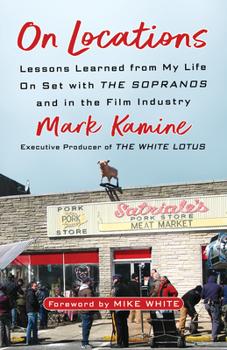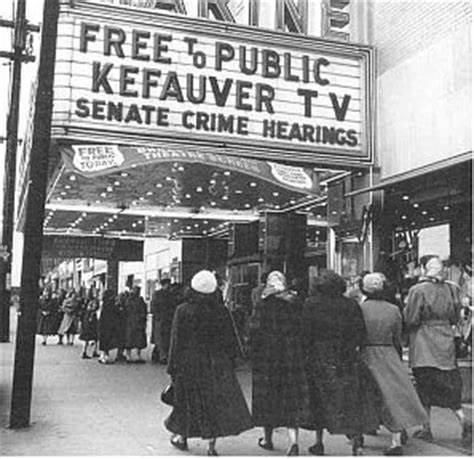
“Old soldiers never die,” General MacArthur said, “they just fade away.” Old mob shows never die, either, nor do they just fade away.
A book by Mark Kamine is out called, On Locations: Lessons Learned from My Life On Set with The Sopranos and in the Film Industry (pictured). Now an Emmy-winning producer of the cable TV hit The White Lotus, Kamine decided to “celebrate” the 25th anniversary of The Sopranos by detailing his work on the show as a location manager, i.e, the person in charge of finding places to shoot movie or TV scenes.
That a low-level employee on that defamatory show has a direct pipeline to the publishing industry is eye-opening: It proves how thoroughly anti-Italian prejudice permeates both the American entertainment industry (for making shows like The Sopranos) and America itself (for accepting such tripe).
Imagine a key grip or an electrician on, say, an old John Ford western from the 1960s or 70s promoting such a book. He would be laughed at or excoriated for his tone-deafness via embracing gross stereotypes of Native Americans. But the Italian-American-as-thug is as cuddly as Smokey the Bear.
Trivial as this book may be, it is touching a nerve. Kamine violates an old Hollywood rule: Never expose the industry’s dirty linen in public. Yet he has done so by relating stories about the late James Gandolfini’s massive drug use (cocaine), which surely led to his death by a heart attack at age 51 in 2013.
Former colleagues like Drea De Matteo are outraged. Ms. Matteo said it was cruel to Gandolfini’s widow and young son, and that “[Gandolfini] was an angel,” she told the on-line site DECIDER. “It’s a cash grab. To go and cash in like that—we Italians don’t like that. We don’t freaking like that.”
a) I wonder if she used the word “freaking” and b) way too many Italian American actors certainly cash in via dumping on their heritage (including her).
It is the definition of hypocrisy: De Matteo is more outraged by an author exposing the truth than by an industry which continually typecasts Italian American actors (thugs) and Italian American actresses (bimbos or mob wives). This is also true, sadly, of so many ignorant Italian Americans.
Incidentally: Did you ever wonder how anti-Italian imagery became as baked into our society as Apple Pie?
Our Institute has long traced, especially in our 2015 Film Study Project (www.italic.org, click on Research Library), Hollywood’s institutionalization of crude Italian stereotypes. It began in 1905 (The Italian) and has continued up until the present day (Robert De Niro’s upcoming film about Frank Costello and Vito Genovese). Off-shoots of this then bled into every aspect of entertainment, from TV ads (Godfather’s Pizza) and video games (Mafia) to TV series (The Sopranos) to—God help us all—children’s animation (the Steven Spielberg produced Shark Tale, 2004). And would shows like Saturday Night Live and the late-night talk shows (Kimmel, Colbert, and Meyers) even exist if they didn’t have the ‘dagoes’ to still kick around, guilt-free, in 2024 America?
What actually made both The Godfather and The Sopranos possible was, of all things, television. And this precedes the popularity of the 1959 TV show The Untouchables, a show which featured so many Italian goons as the villains that people referred to it as “Cops and Wops.”

A few years earlier, in 1951, the U.S. Congress conducted the Kefauver hearings on organized crime. The timing was auspicious. Most of the gamblers and low-lives called in to testify were, indeed, Italian Americans. Perfectly logical: Italian crooks, thanks to the stupidity of Prohibition (a WASP initiative), had become uber-wealthy, which in turn allowed them to overtake the Anglos, Irish and Jews who had previously dominated organized crime in our cities.
But a new medium, television, also came to power. The decision to broadcast the hearings on a daily basis meant that every John and Jane Doe in America, from sea to shining sea, was introduced to swarthy-looking dudes taking the Fifth. The stereotype became burned into the American psyche.
To add insult to injury, the hearings were also broadcast in movie theaters across America for those who couldn’t yet afford a high-end TV set. The daily hype from newspaper reporters merely added to the public’s sense of growing paranoia.
By the time a group of Italian surnamed criminals were arrested in upstate New York in 1959—the infamous Apalachin meeting—the public was already conditioned to believe a conspiracy theory: a secret criminal organization, known as either the Mafia or Cosa Nostra, had infiltrated every aspect of American society. These weren’t just ordinary criminals, although they did the exact same thing which other non-Italian criminal gangs did (gambling, extortion, graft, drug dealing, prostitution, and the occasional murder of one of their own for either spilling secrets or cooperating with the feds).
No, these were ‘super criminals’—modern day dragons, if you will, lying in wait behind rocks or bushes, ready to rape America. We were ‘invaded.’
All of this is what may have prompted famed journalist Harry Golden to write in his 1958 book, Only in America, that “the Italian American has become the stereotype of the gangster. This is not only unfair but untrue.”
Golden also finished that perceptive statement by adding, “And yet the remarkable thing is that the Italians do nothing about it.” Hmm. Still true?
Indeed. If our national organizations, over the decades, had had the gumption to take on Hollywood the way other racial, religious, ethnic and (now) sexual groups have done, we, too, would be riding the current gravy train of respectful and inspiring biopics of our heroes and ancestors.
You know the joke: Why do so many Italians have round shoulders? “I don’t know, I don’t know” (add visual of shrugging the shoulders up and down).
We can’t burn books in America. So how about using ones like Kamine’s to throw at Hollywood, the media, and our own feckless organizations, who often honored the mob stars?
Dignity, like charity, begins at home. -BDC




All I see is words, but actions speak louder than words. If we want things to change, we must act to save our heritage, our respect, and our pride.
I’m with you. But I’m also no org leader, nor do I have millions in the bank.
I can only use my bully pulpit.
On my to-do list is to check out the movie American Fiction. It is up for some academy awards this year and deals with an African American Author, whose books keep getting rejected because they are not authentic enough. Finally, in frustration, he responds with a piece laden with stereotypes, sarcasm, and “Black anger”. Much to his chagrin the book gets accepted for publishing and takes on a life of its own, and he is on the way to becoming a celebrated black author–except it is not who he is…hence his dilemma.
In many ways these dynamics are equally in place for Italian Americans–if you deviate from gangsterism and, I need to add, “food” to the stereotype, somehow you lose any credibility. Some artists have made their Faustian pack with Hollywood; and their niche in Hollywood’s stable is secure. I think of Mario Puzo’s other books before The Godfather, in many ways, it parallels the dynamics of American Fiction to a T. Not sure about how to break this cycle, but I am enjoying the exposure American Fiction is getting, and confronting Hollywood…..If it gets an award for exposing Hollywood hypocrisy, wonderful.
The premise that only Black stereotypes sell is patently ridiculous. Spend an hour watching TV and all you will find on ‘fictional’ programming are heroic Blacks, Black doctors and scientists, perfect Black housewives and executives. Whether it’s scripted shows or commercials y’all be at a loss to find stereotypes.
I saw American Fiction and agree with the Black radio and TV hosts who say that they found the so-called “satire” against fawning white liberals to be phony and not relevant. They were more interested in the family dynamics.
If American Fiction had been made when the original source novel was published (2001), the satire, though still broad, would make a bit more sense.
As Mr. Mancini notes, times have visibly changed. The Oscars-So-White campaign of 2016 lit a fire under Hollywood’s lazy ass. Finding any film, TV series, book, TV commercial, etc., which features the kind of stereotypes portrayed in American Fiction is as difficult as finding a haystack needle.
Even if a film deals with allegedly “negative” stereotypes–such as the 2016 Oscar winner for Best Film, Moonlight–the characters always have redeeming values. The macho drug dealer in that film shows tenderness toward a young gay boy. The boy’s crack-addicted mother has a heart-breaking scene later in the film when she apologizes, years later, for hurting him as a child. The boy’s middle-school friend reconnects with him, etc.
Mob movies? Nothing redeeming at all. Thugs and mob wives. Still. In 2023.